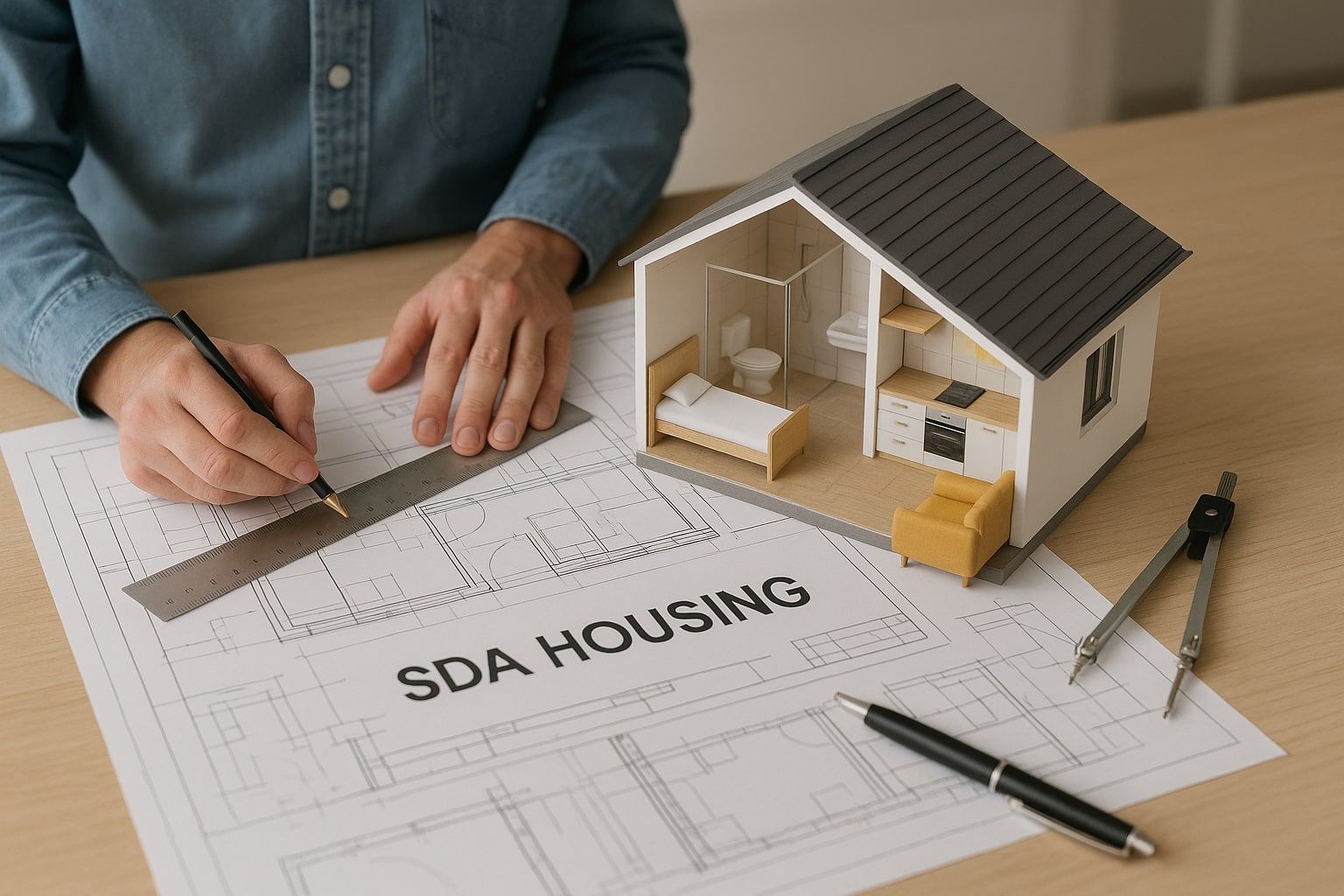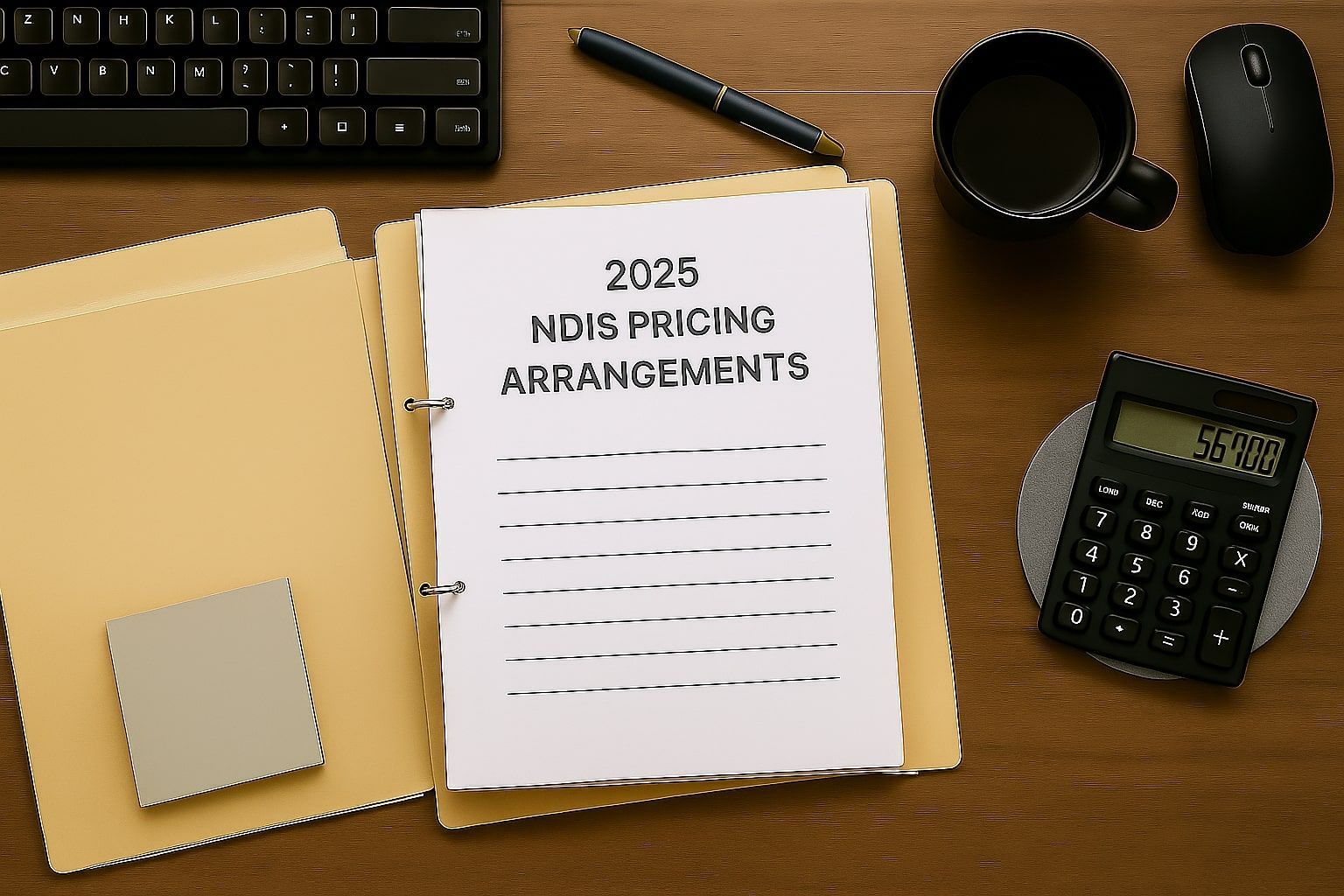Is now the right time to invest in NDIS Housing?
Table of Content
- Is NDIS Housing investment profitable?
- Australia's funding for the NDIS (National Disability Insurance Scheme)
- Where do people with high support needs (SDA participants) currently live?
- What do you need to know before investing in NDIS housing?
An NDIS housing investment can provide a high return for an astute investor, but there are many things that you need to know about this type of investment before making a decision.
An NDIS Housing Investment is not as straightforward as a standard house and land package. Nevertheless, it can provide huge returns whilst also helping someone in need of suitable accommodation.
Furthermore, NDIS property Australia has exhibited considerable growth as a result of Australia's volatile housing market, with returns up to 10-15% annually.
Last August, the National Disability Insurance Agency released a statement noting that in the next four years, users of supported independent living will grow up to 35 percent from
26,000 to 35,000.
The need for Australians to live in a supported environment is increasing, and the shortage of NDIS housing nationwide makes it difficult. “Finding the right Specialist Disability Accommodation (SDA) can be difficult for some participants,” says Minister for Government Services and Minister for the National Disability Insurance Scheme, Linda Reynolds.
“Construction is a necessity for many reasons. One reason is that it meets the current unmet demand and transforms disability housing in Australia,” says Summer Foundation chief executive Di Winkler.
Is NDIS Housing Investment profitable?
“If you look at the numbers from a purely financial perspective, the yield or annual income that NDIS housing offer is beyond anything you could hope for with a traditional investment property,” says Mr. Leko, the founder and managing director of NDIS Loan Experts
“As it stands, the situation for Australians with disabilities is terrible. Particularly for young people with disability who are living in retirement homes, hospitals, or some other very inappropriate setting because they are the options”, Mr. Leko said.
He also shared "Currently, the government incentives and structure for SDA housings means that rental income is much greater on average by three to four times than what investors would generally expect from a non-NDIS housing."
Australia’s funding for the NDIS (National Disability Insurance Scheme)
The Australian government has announced an
additional $13.2 billion in funding for the NDIS (or National Disability Insurance Scheme).
As stated in the last report, the NDIS paid $10.9 billion in payments to participants between July and December 2020, which supported around 433,000 people.
The 2021-2022 Portfolio Budget Statement for Social Services forecasted that the NDIS will have total costs of $33.3 billion by 2024, with participant supports accounting for about 96% of that figure. Furthermore, the National Disability Insurance Agency (NDIA) noted in their 2019 Annual Report that the Scheme will reach 532,000 participants - or 2.3% of Australia’s estimated resident population - by June 2023.
The projected costs for the 2021-22 budget seem to be greater than earlier years, which have grown gradually since 2020. The projections for 2020-21 are greater than the earlier projections, but these figures continue to be revised upwards.
Where do people with high support needs (participants) currently live?
Currently, there are many people with high support needs that aren't living in SDA Houses. The majority of these people are living at home, being taken care of by aging parents or other family members, and are in residential aged care, hospitals, or other inappropriate accommodation.
What do you need to know before investing in NDIS Housing?
For people who are tempted by the returns on offer, as well as for those who may want to make a difference in someone's life, it is almost impossible to find and buy an established NDIS property with a tenant already living there.
An NDIS property is not entirely different from a traditional house and land investment. You still need to secure the parcel of land, demolish and rebuild on it, if it is an established property. You also have to identify the area for purchase and engage with builders who are specialized in constructing NDIS properties.
Before searching for NDIS property for sale, the first thing to look for is NDIS participants, followed by locations with a demand. It's important to make sure that you're building a house for the right type of disability in an area where there are limited supplies.
“Getting help from an expert with knowledge and connections in the NDIS Housing will immensely aid your NDIS investment journey, as there are few builders who specialise in NDIS across the country.” Says Mr. Leko
If you want to invest in
NDIS Housing or looking for an
NDIS property for sale, we can provide you with a complete end-to-end pathway with Participants and Providers to connect with Suppliers in creating a total housing solution.
We only partner with the best builders, developers, and service providers to ensure together with property investors we can supply outstanding homes for disabled people to live in.




